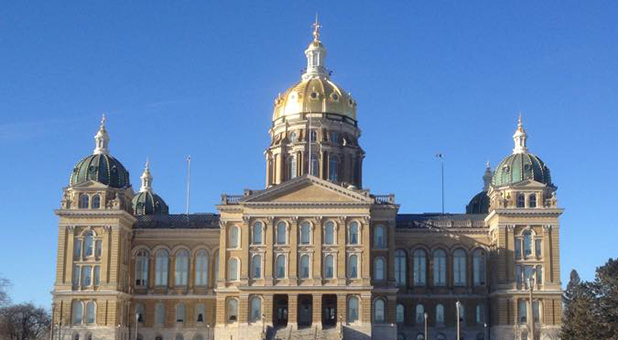Every four years, the men and women who want to become president of the United States heed Meredith Willson’s advice and “give Iowa a try.”
But why Iowa? It’s just a bunch of farmers, sitting in the middle of “flyover country,” so what could they possibly know about the issues that really matter to Americans?
The answer to both of those questions just might surprise you. So let’s get to know Iowa just a little bit better.
Iowa was a part of the Louisiana Purchase (its tri-colored flag reflects the state’s French connection) and derives its name from the French pronunciation of the name of a tribe of Sioux Indians. It’s locked in by the Mississippi River to the east and the Missouri and Big Sioux rivers to the west.
It calls six states “neighbor”: Minnesota, Wisconsin, Illinois, Missouri, Nebraska and South Dakota.
At 56,272 square miles, it is the 26th largest in terms of land area, but boasts a relatively small population of 3.1 million, which ranks 30th. And as anyone who has ridden on the annual RAGBRAI—the largest bike-touring event in the world that crosses Iowa west-to-east every July—can tell you, it’s anything but flat.
Most of the state’s topography consists of rolling hills, which become steep—almost mountainous—in the state’s three major river valleys: the Mississippi, the Missouri and the Des Moines. As is the case in every other state, the rural areas are utilized for farming.
Iowa became the 29th state on Dec. 28, 1846. The original capitol was constructed in Iowa City, and is now used as the student union for the University of Iowa. Today, the capital city is Des Moines.
Long before the establishment of the Iowa Caucuses, as we know them today (in 1980), Iowans were used to getting up close and personal with their elected officials.
The state is divided into 99 counties, most of which are rectangular in shape (except those that border the Mississippi, Missouri and Big Sioux rivers), and were platted with the idea that any mid-1800s citizen should be able to travel to the county seat by wagon in a single day. But thanks to Lee County in the southwest part of the state, there are 100 county seats.
The Iowa General Assembly, divided into the House of Representatives and the Senate, also lends itself to citizen engagement. There are 100 seats in the House and 50 in the Senate (two House districts comprise one Senate district), meaning there is a Representative for roughly every 31,000 Iowans.
For most of its history, Iowa was the stereotype: a largely agrarian society in which almost every aspect of daily life was centered around farming, or providing services to those who farmed. Following the Farm Crisis of the 1980s, which nearly crippled the state, it’s economy has been greatly diversified.
Today, agriculture ranks 10th as a percentage of State Domestic Product, while manufacturing, biotechnology, finance and insurance services contribute more substantially. The state’s median income of $48,000 a year ranks 24th.
Iowans are well-versed in the issues that affect the rest of the country, and they’re used to walking up to politicians and grilling them on the issues. And, if you’ve ever spent a day “on the stump” with a presidential candidate, you quickly learn that they’re very good at both.
Next week, we’ll look at the various reasons why Iowans have such a firm grasp of the issues.
See an error in this article?
To contact us or to submit an article






















